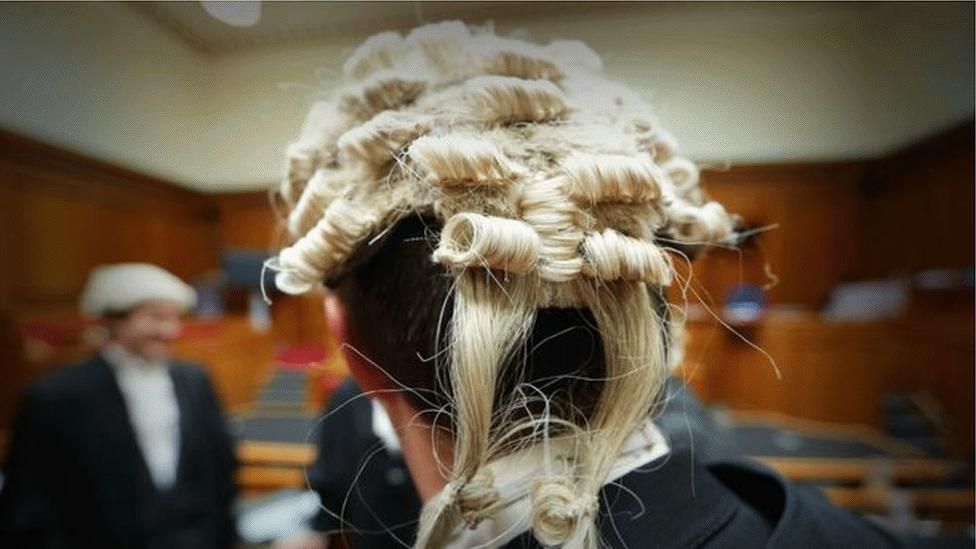Woman wins rape case in civil court after Dundee attack
- Published

A woman who has become only the second person in Scotland to win a rape case in a civil court after a not proven verdict at a criminal trial has described her long fight for justice.
The woman, known as Ms AB, said a night out in Dundee in 2015 to celebrate her birthday ended up becoming the worst day of her life after she was raped by soldier Sean Diamond.
"It started a spiral of hell in my life which led to two very traumatic court cases and six-and-a-half years of a very long fight for justice," she told BBC Scotland.
After meeting Mr Diamond in a nightclub, Ms AB went to sleep on a friend's sofa fully dressed. She woke up pinned down on her front and was being raped.
Before the case even went to trial, within the first year after the rape, she started having panic attacks, was diagnosed with PTSD and attempted suicide.
"I didn't see how there was a way to carry on living my life," she told BBC Radio's Drivetime with Fiona Stalker. "I've always been a very bubbly, outgoing person, no stresses, no fears, nothing would faze me before."
The case went to trial in October 2017 but the jury found the case against Mr Diamond not proven.
'The world stopped'
"I've felt so let-down and broken by the criminal court outcome which was a complete and utter joke," Ms AB said.
"In a criminal court those who are being prosecuted do not have to take the stand, they do not have to give evidence. They can sit there with their head down and their mouth zip-locked closed for the entire trial.
"I remember so clearly I was driving home when I got the call about the verdict," she said. "At that point the world stopped.
"To have gone through all that trauma and prepared myself mentally for going through that just for it all to be wiped away - like somebody cleaning a table with a cloth."
Ms AB first sued Mr Diamond in a civil action in 2018. Damages were granted by a Dundee sheriff after the claim was not defended by Mr Diamond.
However, Mr Diamond subsequently applied to have the decree recalled, claiming he had not understood the consequences of failing to respond.
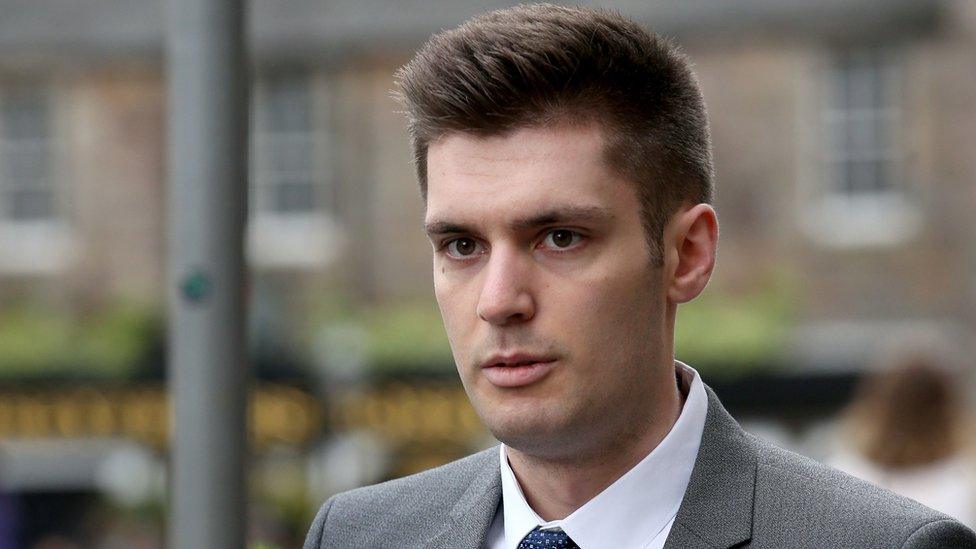
In another civil case, a sheriff ruled that Stephen Coxen had raped a woman after a night out in Fife in 2013
Because there was no substantial defence, the court agreed to lift the judgement and allowed the case to be heard again - the details of which were recently made public, external.
However, this time Mr Diamond put up a defence and lost the case. Ms AB was granted £119,250.
"This verdict, to see in black and white, that he is guilty and that he is a rapist, based on the evidence, it's massive," Ms AB said.
"I ask myself where I found the strength to do this? It's a credit to my family and friends who have kept me going all this time. Without them I wouldn't still be here."
Ms AB said she now felt like she had some peace in her life after moving abroad and finding "some true happiness".
"However, I also have so much more healing to do," she said. "This will always be part of me but I'm living proof that you can come through this and you can be happy and recover to an extent."
'Treated like a criminal'
Ms AB would like to see not proven cases abolished and believes those being prosecuted should be obliged to give evidence.
"It's simply unacceptable that they are not being held accountable," she said. "I was treated like a criminal in the criminal court and I was the victim. And he sat there completely silent for four days."
Addressing anyone who has gone through any similar situation, she said: "Your voice is the most powerful tool you have - don't ever let anyone silence that. The moment we silence ourselves, as hard as it is to speak out, we're letting them win.
"We have to hold these awful people to account for the lives they are ruining."
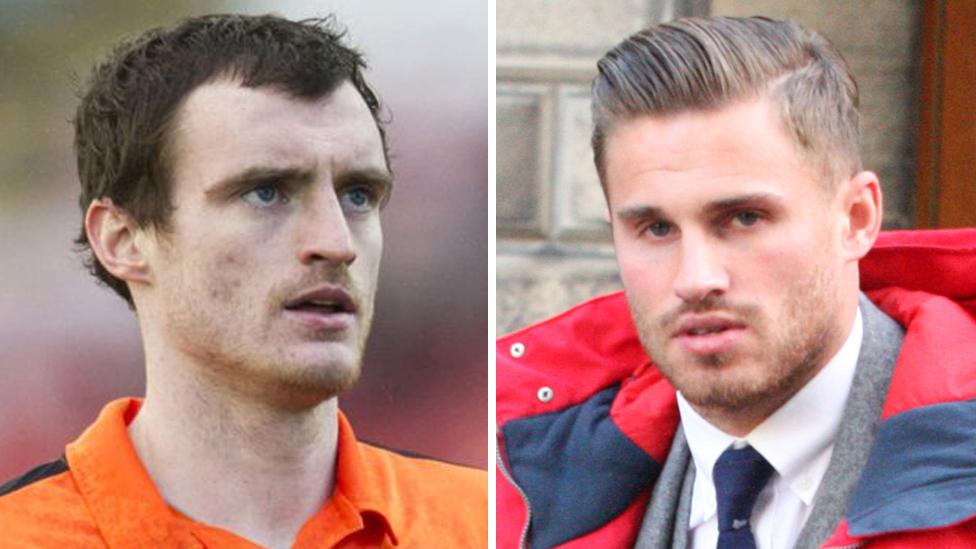
In 2017 Denise Clair, won a civil case against footballers David Goodwillie and David Robertson
Mr Diamond was based in Leuchars at the time of the alleged crime. He is currently serving with the Queen's Dragoon Guards based at Robertson Barracks in Dereham, Norfolk.
An Army spokesperson said: "We are aware of the judgment regarding the civil case against a soldier in The Queen's Dragoon Guards and this will be subject to further review by the chain of command to determine what action if any is appropriate.
"Soldiers and officers at all levels of the British Army are held to the highest standards. If individuals fail to meet these standards then appropriate action is taken."
'Hugely significant'
The civil court outcome is only the second ruling of its kind in recent Scottish legal history.
In October 2018, in another civil case, a sheriff ruled that Stephen Coxen had raped a woman after a night out in Fife in 2013 and ordered him to pay her £80,000.
Mr Coxen had previously faced a criminal trial but the case was found not proven.
In 2017 Denise Clair, won a civil case against footballers David Goodwillie and David Robertson.
But that case was different as Ms Clair, who waived her right to anonymity, brought the civil action after the Crown had decided against prosecuting the pair in the criminal courts.
The judge in the civil court found that the rapes had happened and awarded Ms Clair £100,000 damages from the men.
Speaking about Ms AB's case, Sandy Brindley, chief executive of Rape Crisis Scotland, said: "This is a hugely significant judgement which exposes cracks in a criminal system that all too often is not delivering justice for survivors of sexual crimes.
"We pay tribute to the courage and perseverance of Ms AB, but also know that she should not have had to fight this hard, or for this long to secure justice."
She added that the case highlighted the fact that urgent action was needed to reform the justice system.
"We have to address the issues that make the process so unbearable for those who report sexual crimes and ensure that the system is robust and capable of holding guilty men to account," she said.
- Published17 August 2018

- Published5 October 2018
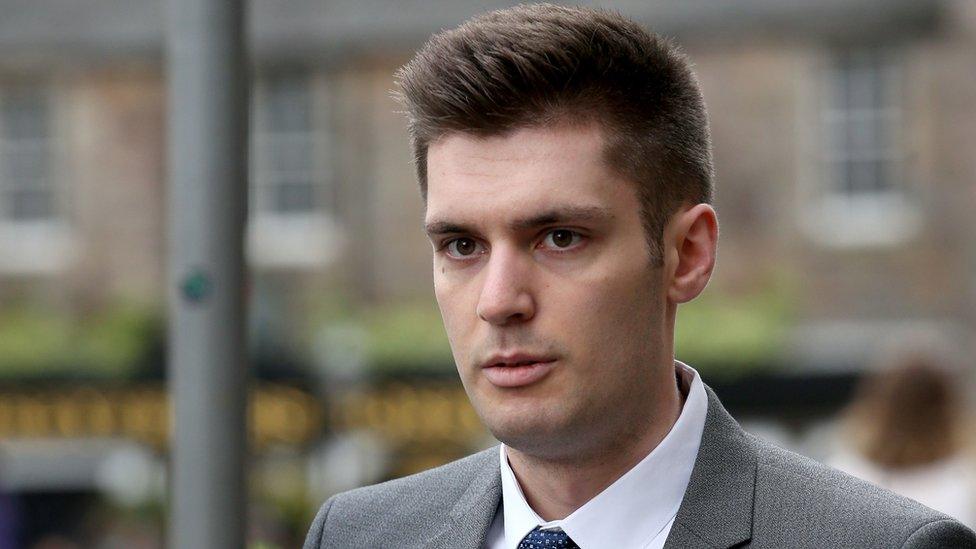
- Published17 January 2017
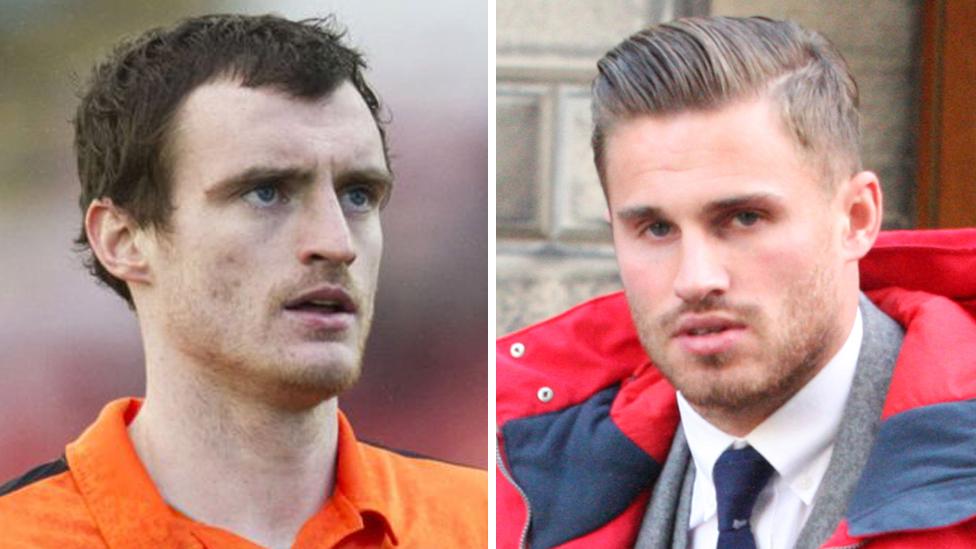
- Published13 December 2021
